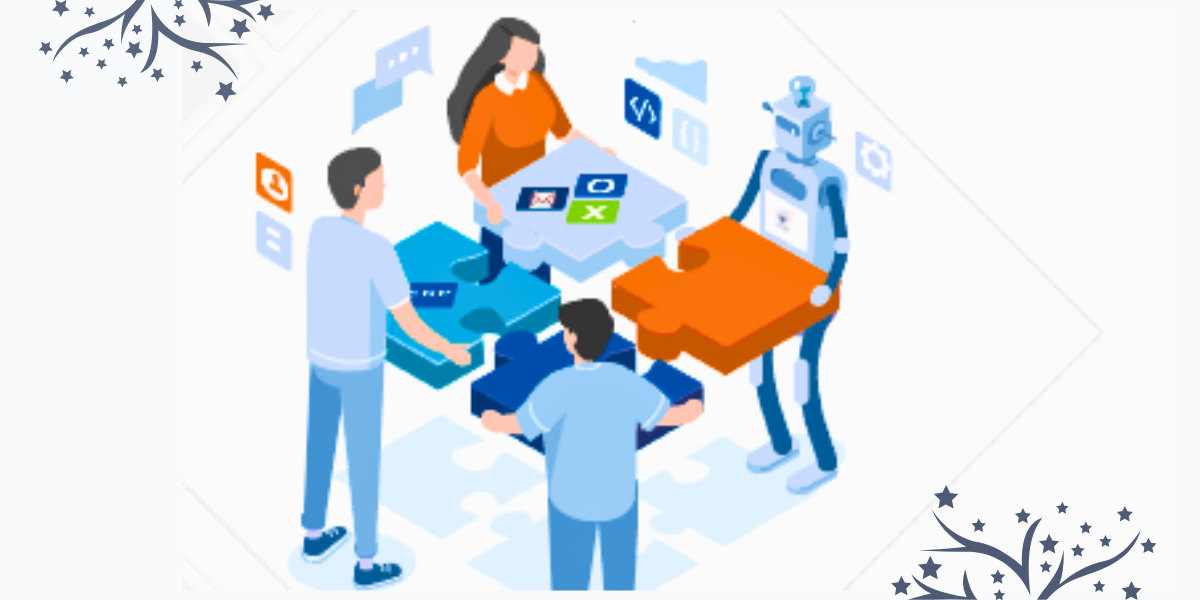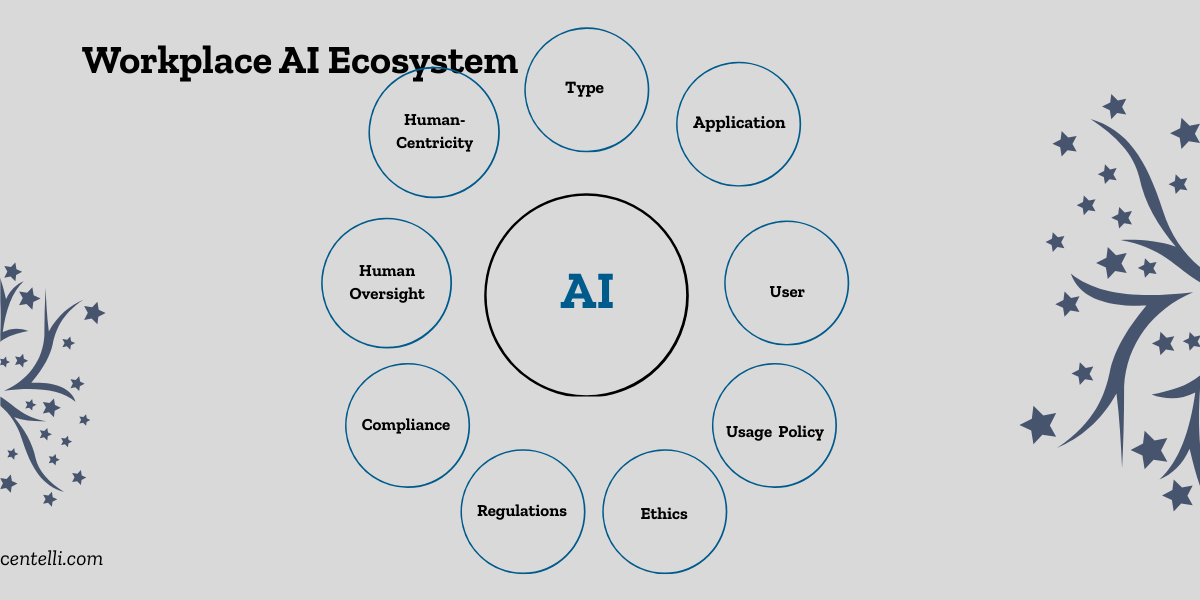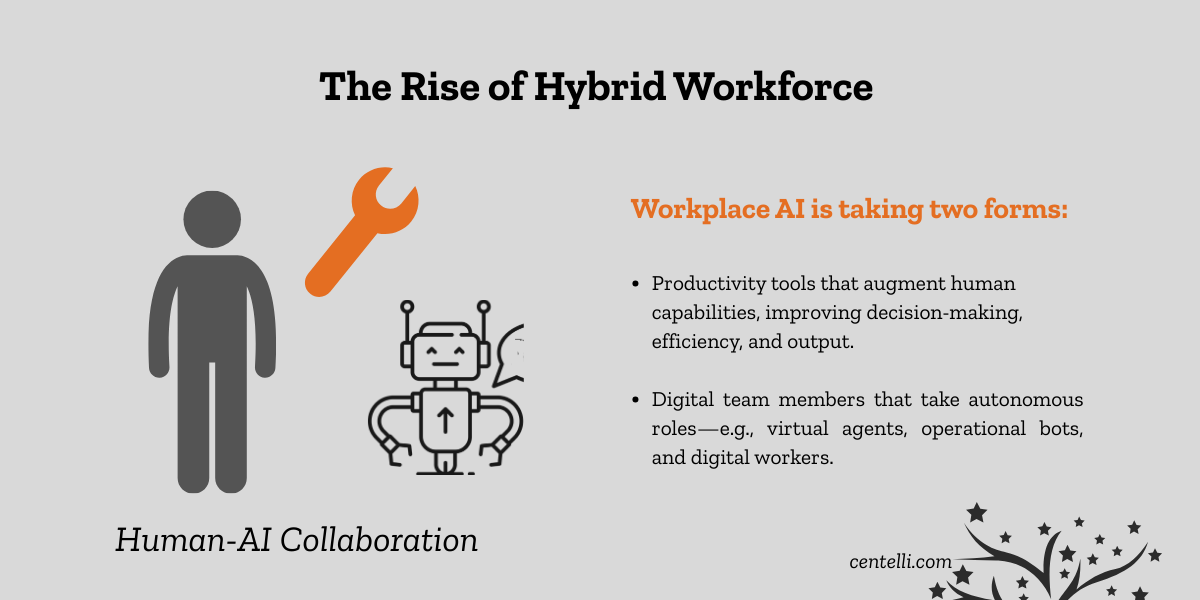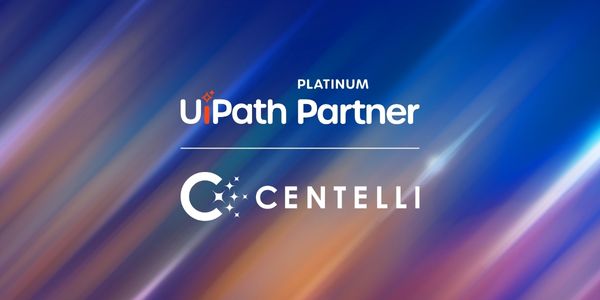
- Artificial Intelligence
- Written By Namita Bhagat
AI in the Workplace: Scope, Ethics, and Choosing the Right Tools
23-Sep-2025 . 8 min read
AI in the workplace is becoming a key differentiator. From boardrooms to back offices, it is reshaping how organizations operate and how employees engage with their work.
As industries transition into AI-infused environments, we’re witnessing both practical applications and ethical dilemmas unfold.
This blog explores the twin impact of AI on organizational workflows and employee experience. We also overview the rise of hybrid human-AI intelligence along with tips on what to look for if you’re planning AI initiatives.
Workplace AI Is Becoming a Core Productivity Driver
AI technologies are actively transforming how work gets done! From automating repetitive tasks to enabling smarter decision-making, they are becoming a core productivity driver in the workplace.
- Tools like intelligent dashboards, chatbots, smart scheduling assistants, OCR-based document and data handling, and AI-powered document processing are streamlining workflows across departments.
- Employees are benefitting from automated workflows, real-time insights, 24/7 support access, and smart assistants to streamline communication — often without realizing how seamlessly AI technologies are integrated into daily workflows and how much manual effort they reduce.
Interestingly, unlike earlier technologies that took years to reach mainstream adoption, AI is being integrated rapidly — thanks to user-friendly interfaces, cloud platforms, and APIs. And teams are completing tasks faster, reducing errors, and reallocating time toward strategic work!

Over the past two years, the percentage of US employees using AI a few times a year or more has nearly doubled — from 21% to 40%. Frequent use (a few times a week or more) has risen from 11% to 19%, while daily use has doubled in the past 12 months alone, from 4% to 8%, according to Gallup findings published in June 2025.
How AI in the Workplace Supports Different Roles
Almost every industry today leverages AI in some form or at some level. From frontline operations to strategic planning, it is being embedded across processes.
Top Use Cases of Workplace AI Across Roles:
- Accountants: AI systems streamline data entry, reconciliations, analysis, reporting, and compliance. This reduces repetitive tasks, minimizes human error, and mitigates fraud risk.
- Banking Executives: Intelligent algorithms support customer profiling, EMI and payout calculations, credit risk assessment, compliance monitoring, and personalized outreach. This improves service quality and speeds decision-making.
- HR Professionals: Automation tools and smart workflows assist with onboarding, offboarding, and employee engagement. They improve experiences, streamline processes, and reduce administrative effort.
- Admin & Back Office: AI helps with data entry, document organization, calendar coordination, and inventory tracking. It reduces manual workloads while boosting efficiency.
- Project Managers: AI supports data-backed planning, risk analysis, resource optimization, intelligent scheduling, and progress dashboards. It keeps projects on track with less oversight.
- Product Developers: AI assists with market research, prototyping, anomaly detection, and workflow automation. This accelerates innovation and reduces development bottlenecks.
- Marketing Teams: AI powers content creation, design assistance, campaign analysis, and audience targeting. It saves time on research and creative work while improving campaign effectiveness.
- Sales Teams: AI handles lead scoring, personalized outreach, CRM updates, and sales forecasting. This gives sales teams more time for customer-facing consultations, improving conversion rates.
- Customer Service Staff: AI manages smart email responses, chatbots, and real-time customer records. It improves response speed and escalates to humans when needed, enhancing satisfaction.
- Front Desk Executives: Automated systems manage visitor check-ins, appointment scheduling, multilingual support, and instant information delivery. They help create smoother guest experiences with less effort.
- Healthcare Facilities: AI supports patient record keeping, real-time medical updates, billing, insurance, personalized treatment plans, and AI-assisted surgeries. This improves facility management and patient experience.
Strategic AI for Leadership
While AI is transforming how employees work, its impact on leadership is equally profound. Senior leaders and decision-makers are now using AI to drive innovation, respond to change with agility, and make smarter decisions rooted in data.
From strategic planning and SWOT analysis to KPI monitoring and scenario mapping, AI enables faster pivots, better forecasting, and more confident long-term direction. For captains, it’s becoming an indispensable tool to steer the organizational ship with clarity and precision.
Promoting Ethical AI in the Workplace
While AI brings many real benefits, we must also be aware of how to use it ethically and responsibly. Two typical challenges include algorithmic bias and data privacy. As global AI regulations evolve, staying informed and compliant will be critical for both organizations and individuals.
Organizations deploying AI should:
- Prioritize responsible AI design: Embed ethical principles like fairness, accountability, and security into model development itself.
- Ensure human oversight: Keep a “human in the loop” for critical decisions; high-stakes judgments should never be made solely by AI.

- Establish clear policies: Define and enforce rules covering data privacy, transparency, and bias prevention.
- Monitor and audit systems: Regularly review AI for bias, performance drift, or unexpected behaviors.
Clearly, senior leaders play a pivotal role in AI adoption and fostering a culture of responsible and meaningful use. As Julie Bedard, a BCG Managing Director and Partner, underscores, “The CEO must set the narrative that this isn’t just AI for AI’s sake. It’s about redefining work to create meaningful impact.”
Employees interacting with AI should:
- Know the tool’s purpose: Understand the AI tool is designed to do (and what it isn’t) to recognize limitations and potential errors.
- Maintain critical thinking: Fact-check, verify sources, and apply judgment to AI outputs, if needed.
- Protect sensitive data: Use secure passwords and share confidential information only with authorized individuals via approved channels only.
- Abide by workplace policy: Follow company guidelines for AI use, data handling, and responsible conduct — whether working in the office or remotely.
Notably, most everyday AI tools don’t require deep technical expertise. Employees from across industries can quickly adapt with basic digital skills and some training.
Hybrid Workforce: Humans and AI in the Workplace
The modern workplace is transitioning from human-only work to human-AI collaboration. This shift is visible across sectors, not just in tech-heavy environments.
Workplace AI is taking two forms:
- Productivity tool for humans: These solutions are meant to enable, assist, and augment human capabilities, improving their output, decision-making, and efficiency.
- Autonomous models: These work like a team member handling end-to-end processing. Key examples: Digital Workers and agents.

New use cases are emerging across departments and functions. Roles are being redefined, shifting focus from mundane tasks to complex, strategic work and value creation. Therefore, working with AI is no longer optional but a critical practical skill.
“Top performing companies will move from chasing AI use cases to using AI to fulfill business strategy,” foresees Dan Priest, PwC US Chief AI Officer.
With changing workplace dynamics, employees at all levels must also cultivate emotional intelligence and collaborative mindset to work effectively alongside intelligent systems.
However, even as AI takes center stage, we must also acknowledge that human supervision cannot be fully eliminated, even for advanced AI models. Therefore, organizations exploring AI adoption should invest strategically to maximize ROI.
Selecting the Best-Fit AI for Your Workplace
The future of work is hybrid, collaborative, and inseparable from AI. But curiosity and trend-chasing aren’t enough! Organizations must make informed choices to truly benefit.
One such choice is bringing the right experts and consultants on board to guide your AI journey, so you don’t end up hitting a wall.
When evaluating AI partner and tools, consider:
- Vendor expertise – Does the provider bring domain-specific knowledge and consultation?
- Scalability – Can the AI model grow with your business needs?
- Compliance – Does it meet AI regulations and privacy standards?
- Security – Are data protections and access controls strong?
- Integration support – Can it connect with your existing systems and tools?
- Customization – Can it adapt to your workflows or industry?
- Ease of use – Is it intuitive for non-technical users?
Explore AI Solutions with Centelli!
Centelli is a long-term UiPath partner, delivering custom AI solutions that drive measurable results and real value.
Here’s a glimpse of our AI capabilities:
- Intelligent Digital Workers that automate cross-functional tasks with precision.
- Custom-built AI and GPT-powered solutions for document drafting, intelligent document processing (IDP), communication mining, and more.
- AI-driven business intelligence solutions and strategic consultation for smarter planning and decision-making.
- Industry-specific solutions like CommsIQ, an advanced AI-powered email triage tool for hospitality businesses. We’re actively expanding into other sector- and process-specific offerings, too.
- Agentic Automation that connects tasks, processes, and teams — delivering seamless, end-to-end efficiency.
Book a free call with us to discover how we can support your AI journey today.
———————————————————————————————————–
Quick FAQs on AI in the Workplace
Whether you’re just starting out or scaling AI across teams, these FAQs have you covered.
1. How will AI change the future of the workplace?
AI will reshape workplaces by automating routine tasks, enabling smarter decision-making, and introducing hybrid human-AI teams. As roles evolve, organizations will rely more on data-driven processes and adaptive technologies to gain a competitive edge.
2. How can AI be used in a workplace?
AI can be implemented across departments to streamline tasks and enhance accuracy. Centelli’s Digital Workers execute routine processes with precision, while GPT-powered tools support document drafting, communication analysis, and insight generation. Thus, AI is a powerful operational ally.
3. How can AI improve workplace efficiency?
AI streamlines workflows, reduces manual effort and error, and delivers reliable insights. Tools like scheduling assistants and intelligent dashboards help teams operate faster and more accurately. This frees up bandwidth for strategic priorities.
4. Why is the importance of custom AI?
Custom AI solutions are designed to fit specific industries, processes, and workflows. Centelli specializes in building custom AI and automation tools that align with your exact operational and business needs. Download free guides here!
5. How can AI help organizations grow and innovate?
AI drives faster decision-making, improves operational efficiency, and uncovers opportunities through predictive insights. Centelli’s agentic automation connects tasks, processes, and teams, helping businesses scale faster without overheads.




